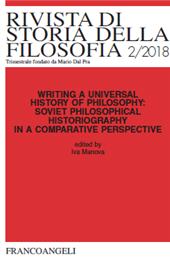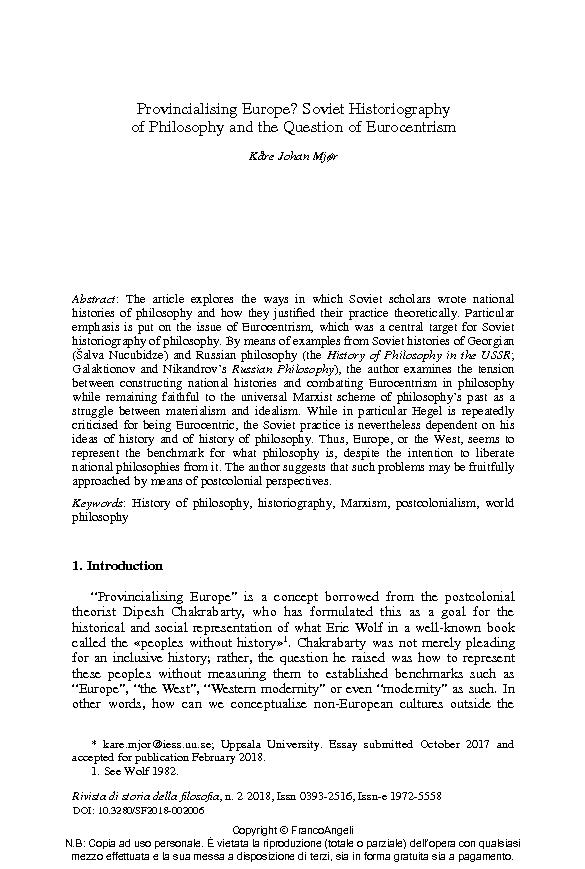Provincialising Europe? : Soviet Historiography of Philosophy and the Question of Eurocentrism
277-293 p.
The article explores the ways in which Soviet scholars wrote national histories of philosophy and how they justified their practice theoretically. Particular emphasis is put on the issue of Eurocentrism, which was a central target for Soviet historiography of philosophy. By means of examples from Soviet histories of Georgian (Šalva Nucubidze) and Russian philosophy (the History of Philosophy in the USSR; Galaktionov and Nikandrov's Russian Philosophy), the author examines the tension between constructing national histories and combatting Eurocentrism in philosophy while remaining faithful to the universal Marxist scheme of philosophy's past as a struggle between materialism and idealism. While in particular Hegel is repeatedly criticised for being Eurocentric, the Soviet practice is nevertheless dependent on his ideas of history and of history of philosophy.
Thus, Europe, or the West, seems to represent the benchmark for what philosophy is, despite the intention to liberate national philosophies from it. The author suggests that such problems may be fruitfully approached by means of postcolonial perspectives. [Publishers' text].
Fait partie de
Rivista di storia della filosofia : LXXIII, 2, 2018-
Articles du même numéro (disponibles individuellement)
-
Informations
Code DOI : 10.3280/SF2018-002006
ISSN: 1972-5558
KEYWORDS
- History of philosophy, historiography, Marxism, postcolonialism, world philosophy



